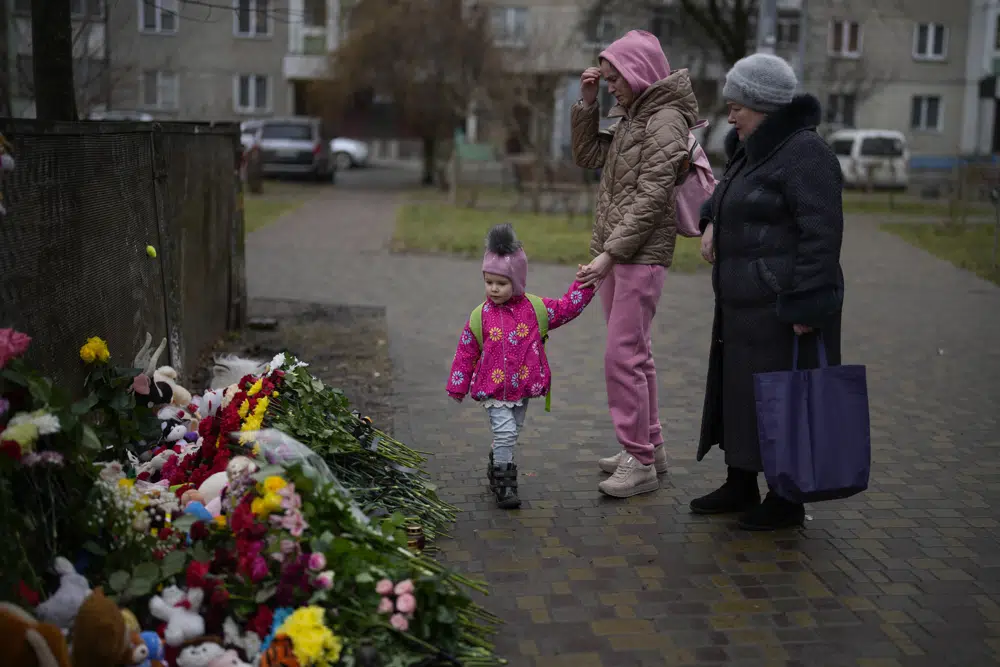Russia claimed Friday to have captured a village in eastern Ukraine as part of its intense, monthslong push toward the city of Bakhmut, while Ukraine’s allies failed to resolve a dispute about whether to send advanced battle tanks that the country avidly desires.
Russian Defense Ministry spokesman Igor Konashenkov said the village of Klishchiivka, which is located nine kilometers (five miles) south of Bakhmut, had been “liberated.”
The claim couldn’t be independently verified, and Ukrainian officials made no immediate comment on the claim.
Taking Klishchiivka would be only a minor breakthrough, but the Kremlin is hungry for good news from the battlefield after months of setbacks.
Bakhmut, on the other hand, would be a bigger prize. It could allow Russia to disrupt Ukrainian supply lines in the east and threaten other Ukrainian-held cities in the surrounding Donestk region.
However, U.S. officials have begun to nudge the Ukrainians to shift focus away from Bakhmut and focus on preparation for an offensive in the south, according to an official familiar with the views of President Joe Biden’s administration.
The official said administration officials have conveyed that they believe there is a high potential for the Russians to eventually push Ukrainian forces out of Bakhmut amid some of the war’s most intense fighting to date. Administration officials believe that significant forces will be needed for an expected Ukrainian offensive in the south, but many of those forces are currently embroiled in Bakhmut.
The war has been largely static during the winter months, according to military analysts, except for some hot spots like Bakhmut and Soledar, a nearby salt mining town.
The Kremlin’s forces have kept up their long-distance shelling of Ukrainian targets, hitting key infrastructure and civilian areas, while probing Ukrainian defenses in the east.
The Ukrainian presidential office said at least five civilians were killed between Thursday and Friday mornings, and six others were wounded as Russian forces shelled seven provinces in the country’s south and east.
Ukrainian troops repelled Russian attacks near a number of settlements in Donetsk and the neighboring Luhansk region, the General Staff of the Ukraine’s armed forces said.
The two provinces together make up the Donbas, an industrial heartland that borders Russia where pro-Moscow separatists have fought for almost nine years.
John Lough, an associate fellow in the Russia and Eurasia program at the Chatham House think tank in London, said the Ukraine battlefield situation is “inconclusive,” with a renewed Russian push expected in the spring.
The war is “quite delicately poised,” he told The Associated Press.
Ukrainian President Volodymyr Zelenskyy has pleaded with Western allies to send tanks that would help punch through Russian lines. Defense leaders from nearly 50 countries discussed that possibility at a meeting in Germany on Friday, but no decision was made, according to Poland’s defense minister.
Marina Miron, of the Defense Studies Department at King’s College London, said tanks are useful, but a number of factors need to be taken into account, including how many will be sent and when, what condition they are in, and how Ukrainian crews will be trained and keep the vehicles supplied.
Giving the tanks would be “more of a political gesture” than something that will change the complexion of the war, Miron told the AP.
Ukraine needs at least 300 tanks to keep Russia from advancing in the Donbas and Zaporizhzhia province, as well as for a possible counteroffensive in the country’s southeast, analysts say. Such a number looks unlikely, for now.
“The war of resources has begun,” Ukrainian military analyst Oleh Zhdanov told the AP. “It is becoming apparent that Ukraine’s successes in the war with Russia will depend directly on the willingness and readiness of Western countries to supply not only defensive weapons to Kyiv, but also powerful offensive weapons, including modern tanks and planes.”

